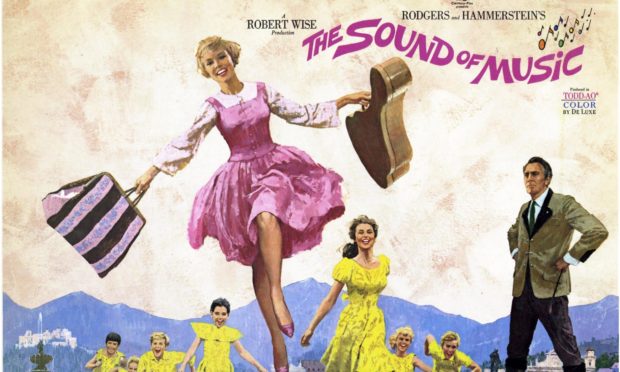The clandestine departure of hundreds of visitors from the skiing resort of Verbier recently, has been compared to the Von Trapps escaping over the Alps in The Sound of Music.
Or indeed to The Great Escape, but in reverse – a crowd of plucky Brits desperately trying to get out of Switzerland rather than into it.
Whichever the more appropriate cinematic comparison, the episode raised questions. What were they doing there in the first place? Where in the Covid regulations did it say we could travel abroad to go on the piste?
It seems some of us have found difficulty understanding what we have been allowed to do, during the festive phase of the pandemic fight.
This can’t have helped efforts to control the variant of the virus, whose increasing presence led to the First Minister’s lockdown announcement in Holyrood yesterday.
Police Scotland at the weekend launched a new online form for members of the public to report others breaking coronavirus restrictions.
People can report anything from a gathering they believe to be in breach of the Covid-19 regulations, to people having travelled into a local community from elsewhere; from individuals not wearing masks to businesses not observing the rules.
This is all surely to be welcomed, if the last two weeks are anything to go by. The ban on travel to/from Tier 4 areas such as London came into force the Sunday before Christmas. The day before Nicola Sturgeon announced cross-border travel was forbidden.
Yet there were anecdotal reports from across the Highlands and Islands of second home owners (and the odd campervan driver, apparently assuming that the travel bans did not apply to them, or indeed their friends and extended families.
The area was all in tier 1, until Boxing Day. Nobody should have been arriving from higher tiers anyway. But holiday plans apparently can trump regulations/law designed to save lives.
This has led to local concern that these arrivals could only increase the risk of infection in small communities. Concern that has grown as Covid-19 rates rose from Shetland to Wigtownshire.
There were similar fears in the first lockdown last Spring. Sometimes locals took action. In one area of the Highlands, those working on the local bin lorry monitored which properties all of a sudden had bins to be collected. The police were informed.
During that lockdown, there was considerable Highland anger that many large self-catering operators, were still trying to rent out properties. That anger has returned in places like Skye. As a result, some visitors have complained they have felt unwelcome. But it is only because of their failure to accept the fairly simple equation – more people from different places equals greater risk of infection in village shops.
Certain second home owners have appeared particularly outraged. Ownership seems to confer a particular sense of entitlement. This has grated with those of us who accepted we would not be able to see loved ones at this most family-centred time of year.
There have been more responsible second/holiday property owners. Despite being desperate to spend their Christmas and New Year in the north, they have stayed away or haven’t tried to rent their properties out of respect to the local community.
But it has all served to strain the already complex relationship between local residents and those who holiday amongst us, regularly or occasionally.
It was a subject addressed recently on a rather unlikely platform – a TV programme about a comedian who was born in Crawley in West Sussex to Sri Lankan parents
The Christmas Misadventures of Romesh Ranganathan took him to Skye, Harris and Lewis in the company of Ness crofter Donald ‘Sweeny’ Macsween. There were a few travelogue cliches – Highland Dancing and hammer throwing – but the BBC programme did deal with issues such as crofting, Gaelic, depopulation and the clearances.
Having climbed up to the Old Man of Storr on Skye along with a stream of other visitors, Romesh asked Sweeny about local attitudes to increasing number of tourists. He replied “It is good that people are attracted to these places. Every summer they come. They spend money and keep the communities going. But it is a balancing act. When it goes too far, you have too many people….The past 10 years have probably had more humans here (at the Storr), than the last 1,000 years combined.”
On a Harris beach he returned to the subject. “We are never going to find this happy medium. It doesn’t exist. I want utopia. People give us money and don’t change anything.”
Sorted!
David Ross is a veteran Highland journalist and author of an acclaimed book about his three-decades of reporting on the region

